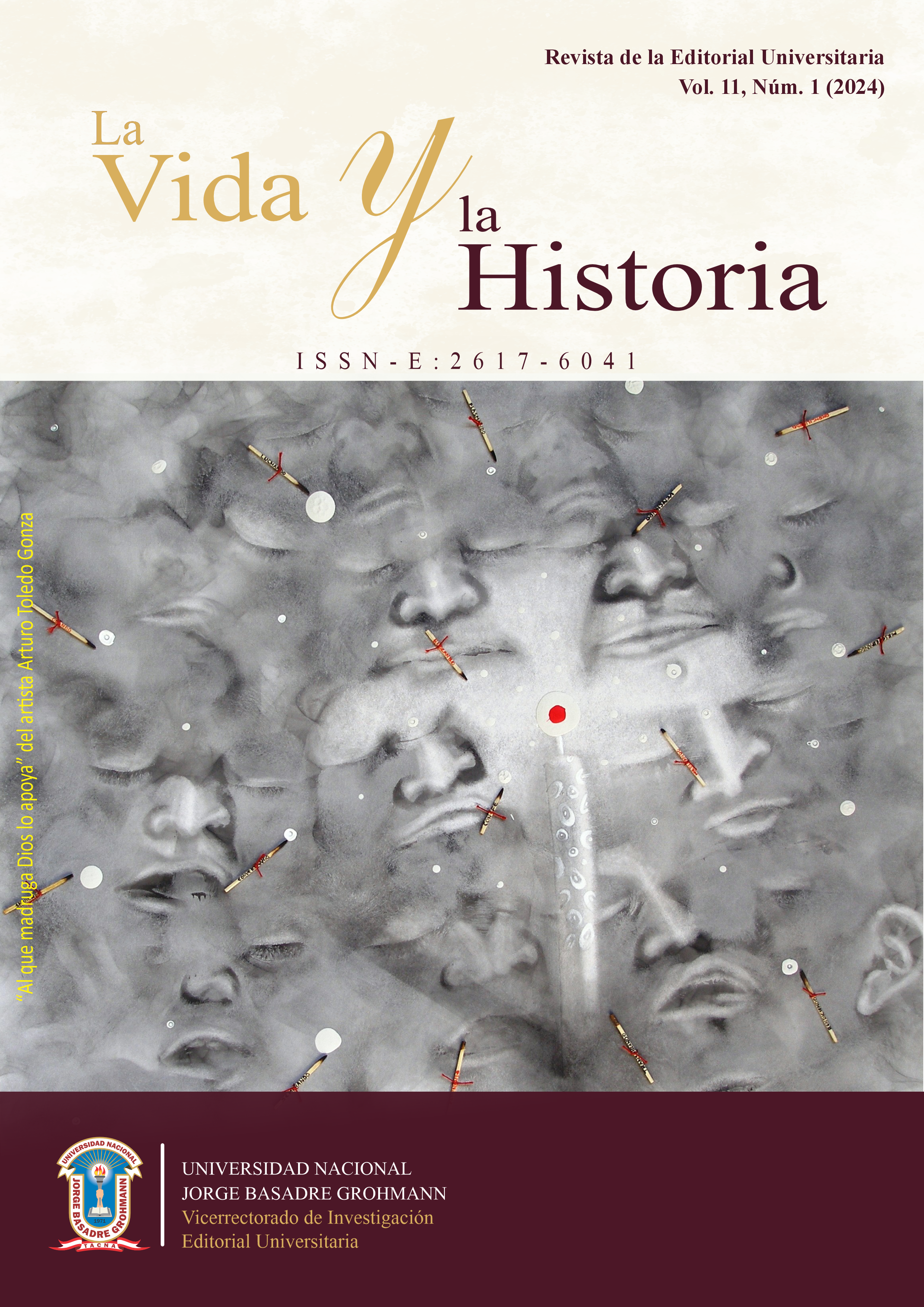The Risks of the use of artificial intelligence without Ethics
Main Article Content
Abstract
The extensive research into the risks associated with unethical artificial intelligence aimed to highlight emerging problems with new technologies without proper oversight. Implementing a qualitative methodology, interviews were carried out with 10 young people from Toulouse Lautrec in Chacarilla. The results showed a growing concern about the use of digital tools, especially applications based on artificial intelligence, and revealed an alarming increase in cases of scams and false information on the internet. In conclusion, the accelerated technological evolution, including artificial intelligence, poses challenges that can exceed legal and ethical limits, generating additional concerns in crucial areas such as security, prevention of scams, protection against extortion and the urgent need to strengthen education for a informed and conscious understanding of these ever-changing challenges.
Downloads
Article Details
References
Ausín, T. (2021). ¿Por qué ética para la Inteligencia Artificial? Lo viejo, lo nuevo y lo espurio. Sociología y tecnociencia, 11(Extra_2), Article Extra_2.
Brundage, M., Avin, S., Clark, J., Toner, H., Eckersley, P., Garfinkel, B., Dafoe, A., Scharre, P., Zeitzoff, T., Filar, B., Anderson, H., Roff, H., Allen, G. C., Steinhardt, J., Flynn, C., hÉigeartaigh, S. Ó., Beard, S., Belfield, H., Farquhar, S., … Amodei, D. (2018). The Malicious Use of Artificial Intelligence: Forecasting, Prevention, and Mitigation (arXiv:1802.07228). arXiv. https://doi.org/10.48550/arXiv.1802.07228
Cortina Orts, A. (2019). Ética de la inteligencia artificial. https://www.boe.es/biblioteca_juridica/anuarios_derecho/abrir_pdf.php?id=ANU-M-2019-10037900394
Flores Vivar, J. M. (2019). Inteligencia artificial y periodismo: Diluyendo el impacto de la desinformación y las noticias falsas a través de los bots. Doxa Comunicación: revista interdisciplinar de estudios de comunicación y ciencias sociales, 29, 197–212.
Franganillo, J. (2022). Contenido generado por inteligencia artificial: Oportunidades y amenazas. Anuario ThinkEPI, 16(1), 42.
González Arencibia, M., & Martínez Cardero, D. (2020). Dilemas éticos en el escenario de la inteligencia artificial. Economía y Sociedad, 25(57), 93-109. https://doi.org/10.15359/eys.25-57.5
Gutiérrez, J. D. (2020). Retos éticos de la inteligencia artificial en el proceso judicial (Ethical Risks of using Artificial Intelligence Systems for Judicial Decision-Making Processes) (SSRN Scholarly Paper 4011179). https://doi.org/10.2139/ssrn.4011179
Inglada Galiana, L., Corral Gudino, L., & Miramontes González, P. (2024). Ética e inteligencia artificial. Revista Clínica Española, 224(3), 178-186. https://doi.org/10.1016/j.rce.2024.01.007
Páramo Morales, L. A. (2019). Inteligencia Artificial: ¿Más peligros que beneficios? Revista Ideales. https://revistas.ut.edu.co/index.php/Ideales/article/view/1870
Ríos, S. (2023). Los riesgos de la Inteligencia Artificial. https://www.dii.uchile.cl/wp-content/uploads/2023/05/02-REVISTA-MENSAJE-Los-riesgos-de-la-Inteligencia-Artificial.pdf
Sanchez Caparros, M. (2023). Principios éticos para una inteligencia artificial antropocéntrica: Consensos actuales desde una perspectiva global y regional. Tratado de Inteligencia Artificial y Derecho, 12. https://scholar.google.com/scholar?cluster=1015267850355835653&hl=en&oi=scholarr
Terrones Rodríguez, A. L. (2018). Inteligencia artificial y ética de la responsabilidad. Cuestiones de Filosofía, 4(22), Article 22. https://doi.org/10.19053/01235095.v4.n22.2018.8311
